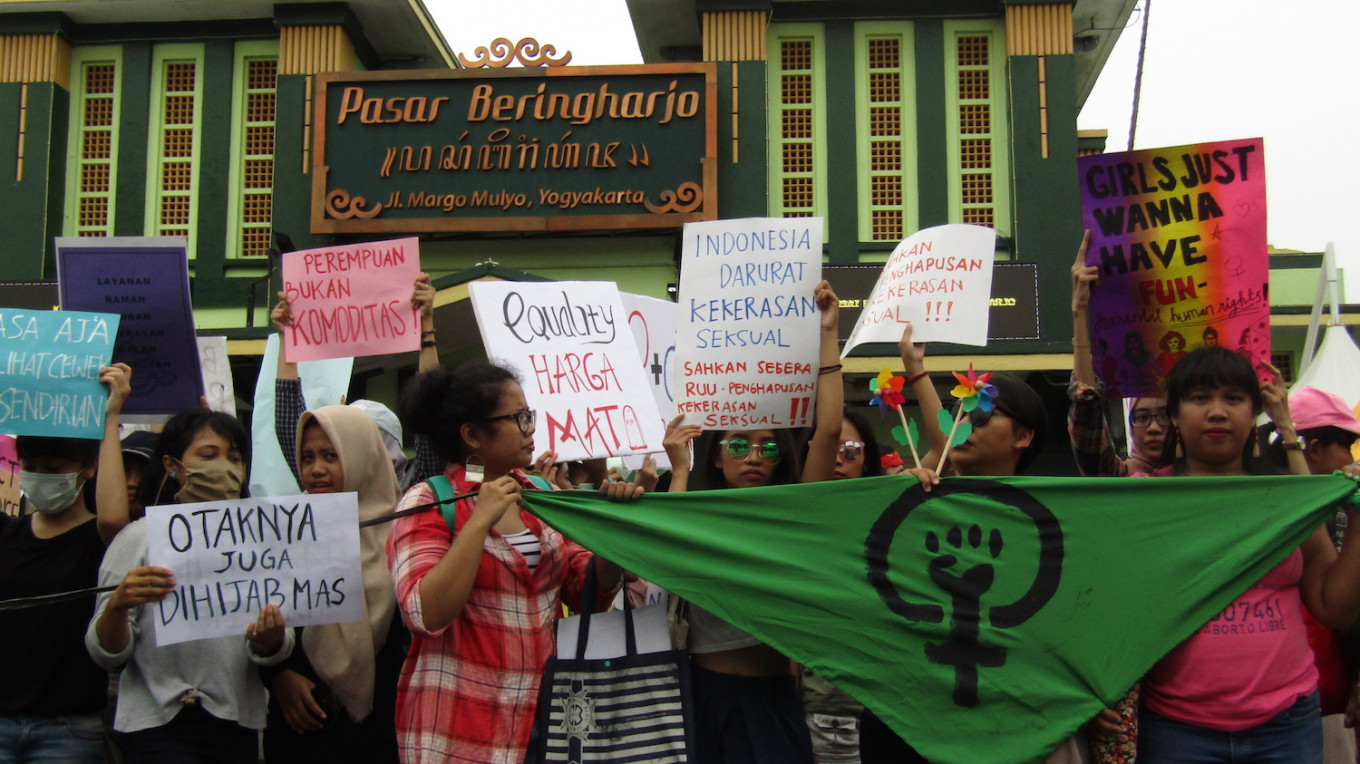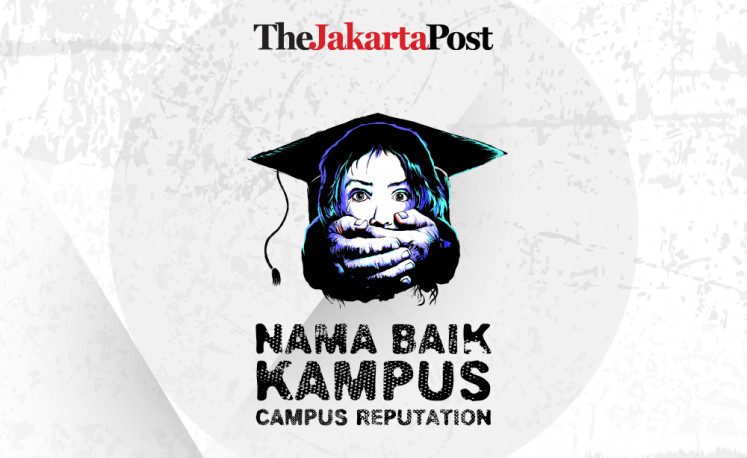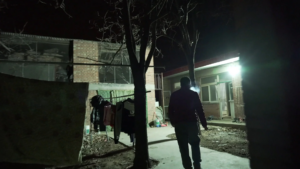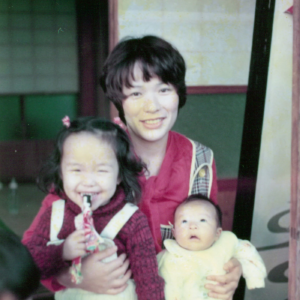“The road was quiet with only palm trees around and it was only two of us in his car when he began to caress my thigh and slip his hand under my bottom. I don’t know why but I couldn’t scream. I didn’t fight back because I was so scared. I was afraid he would get angry and he could do anything to me if I screamed. I could be killed. I didn’t want to die in vain,” said a student from a state university in Sumatra, recalling her chilling story of sexual abuse at the hands of her lecturer. She was going with him on a field trip to do research.
Her story is among 174 stories from survivors, which reveal that sexual harassment and abuse on campuses in Indonesia are widespread in 29 cities from the western to eastern parts of Indonesia, encompassing 79 state, private and religious-based universities.
Most of the survivors were female college students at the time of the alleged abuse, with seven being male.
The cities include Serang and Tangerang in Banten, Medan in North Sumatra, Makassar in South Sulawesi and Malang in East Java.
Many of the cases were not reported and those that were are mostly unresolved.
TIP OF THE ICEBERG
From Feb 13 to March 28, The Jakarta Post, Tirto.id and VICE Indonesia working in collaboration in a project called #NamaBaikKampus (CampusReputation) received 207 testimonies, of which 174 were alleged cases of sexual harassment.
Eighty-eight per cent of the survivors, who shared their stories on an online testimony form, come from universities in Java, with Semarang and Yogyakarta being named the two cities with the highest number of survivors who filled out the collaborative online form.
Yogyakarta and Semarang are home to Gadjah Mada University (UGM) and Diponegoro University (Undip), respectively, which have been named in high profile cases of alleged sexual abuse. There have been two cases at UGM, one of which went viral in November last year, in which a student, whose pseudonym is Agni, reported that she was sexually assaulted by a fellow student.
Last month, #NamaBaikKampus revealed a case at Undip, in which students testified that they were harassed by a male lecturer. The collaboration recorded a spike in testimonies coming from Undip after Tirto.id, the Post and VICE Indonesia published the story.
The National Commission on Violence against Women (Komnas Perempuan) said sexual abuse reports were usually the tip of the iceberg, with more reports meaning more survivors speaking up, but no reports from a certain institution does not mean there was no abuse at that institution.

HAPPENED ON- AND OFF-CAMPUS
Most of the survivors were female college students at the time of the alleged abuse, with seven being male.
Data compiled from their testimonies showed that 50 percent of the survivors said they had experienced sexual harassment multiple times, while the other 50 percent said it happened only once. They were harassed on- and off-campus by students and lecturers when going about their daily activities, during university events, internship programs, community service programs or when doing research.
In another story shared by a survivor, who was a medical student at an Islamic-based university in Central Java, she claims to have been harassed before an operation by a doctor during her internship at a hospital.
“He was sleeping in a resting room so I called him because the patient was ready for surgery. He then asked me to sit next him for a chit chat. He was my professor so I did what he asked me to do, I sat down. He then put his arms around me and tried to kiss me. I was so shocked I didn’t fight back; I just covered my face with my hands. Luckily, my friend suddenly opened the door, I got up and excused myself,” she told #NamaBaikKampus.
The medical student then told the story to her parents. Although they were angry, her parents decided not to do anything about it.
“We couldn’t do much. He is a doctor, a professor and the former director of that hospital,” she said.
Some survivors also reported being verbally harassed. One of them is a student at a Catholic university in West Java. She said a lecturer made a “joke” about susu, which can mean either milk or breasts, while pointing at her breasts in front of her friend and another lecturer.
TOO AFRAID TO REPORT THE CASES
Of 174 survivors, who shared their stories, 87 said they did not report the harassment to any authorities.
“I was still a student when the harassment took place. I’m afraid that [by reporting the case] the university would postpone my graduation because of this matter. Studying at the university already costs so much and I only want to finish my studies on time without any delay,” a survivor in Semarang said.
Most campuses do not have any known procedure to help survivors report their cases. The Research, Technology and Higher Education Ministry’s director general of learning and student affairs, Ismunandar, said in an interview with VICE Indonesia in February that universities in Indonesia were “autonomous” entities and such sexual abuse cases should be handled by each individual institution. The ministry did not have any plan to issue a guideline on eradicating sexual abuse on campus, including abuse perpetrated by lecturers.
However, UGM might be the first one to set up a university-wide policy. After much criticism about how the rectorate handled Agni’s case, which included victim blaming from some officials, UGM is deliberating a policy to give the rectorate a tool to handle future cases better.
“My lecturer also harassed my friend when we were still students but we didn’t know what to do or who to call for help. We didn’t have any facility on campus to solve this issue until now,” another survivor said.
Some of the survivors also did not report their cases because they suspected that university officials would care more about the university’s reputation.
“I’m scared of the top officials who resolutely try to protect the university’s reputation,” a survivor in Banten said.
This story by Gemma Holliani Cahya and Evi Mariani was originally published by Jakarta Post on April 29, 2019. To read more, click here.




